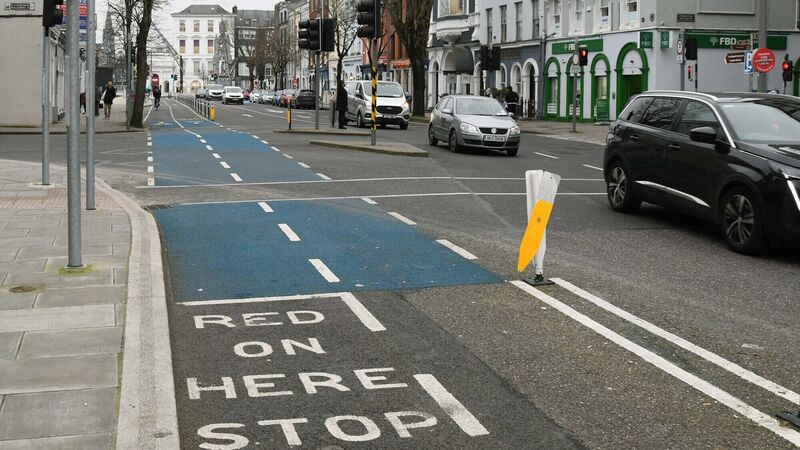Michael Moynihan: On your bike — what kind of city do we want Cork to be?

A cycle lane in South Mall, Cork. Picture Denis Minihane.
Try from €1.50 / week
SUBSCRIBE
A cycle lane in South Mall, Cork. Picture Denis Minihane.
IT’S been ascribed to several authors, but Mark Twain is generally accepted as its most likely creator. Anyone who respects the law and enjoys eating sausages should watch neither being made.
You’ve heard that one, right? Either in its original format, as above, or in something like the offhand reference to be found in Hamilton (“No one really knows how the game is played/The art of the trade/How the sausage gets made”).
Already a subscriber? Sign in
You have reached your article limit.
Annual €130 €80
Best value
Monthly €12€6 / month
Introductory offers for new customers. Annual billed once for first year. Renews at €130. Monthly initial discount (first 3 months) billed monthly, then €12 a month. Ts&Cs apply.
CONNECT WITH US TODAY
Be the first to know the latest news and updates
Newsletter
Sign up to the best reads of the week from irishexaminer.com selected just for you.

Select your favourite newsletters and get the best of Irish Examiner delivered to your inbox
Sunday, February 8, 2026 - 7:00 PM
Sunday, February 8, 2026 - 6:00 PM
Sunday, February 8, 2026 - 1:00 PM
© Examiner Echo Group Limited